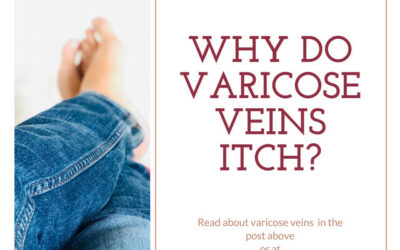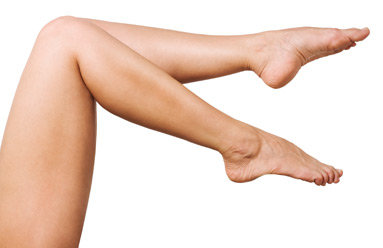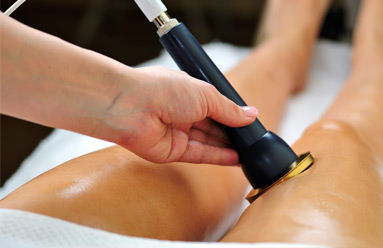
VenaSeal™
What is VenaSeal™?
 VenaSeal™ is the FDA-approved, minimally invasive treatment that uses an adhesive to seal closed veins with malfunctioning valves that cause leg problems including varicose veins, pain, swelling, heaviness, itching, and fatigue. VenaSeal™ is used to treat problems with the great and small saphenous veins, veins in the leg’s superficial system.
VenaSeal™ is the FDA-approved, minimally invasive treatment that uses an adhesive to seal closed veins with malfunctioning valves that cause leg problems including varicose veins, pain, swelling, heaviness, itching, and fatigue. VenaSeal™ is used to treat problems with the great and small saphenous veins, veins in the leg’s superficial system.
Is VenaSeal™ safe?
VenaSeal™ uses a medical adhesive, cyanoacrylate, which has been studied in the treatment of blood vessel malformations in the brain since 2000. In studies leading to the Food and Drug Administration clearance of cyanoacrylate adhesives, it was not found to be mutagenic, pyrogenic, hemolytic, sensitizing, irritating, or cytotoxic. These adhesives been used in other peripheral applications as well including gastrointestinal bleeding and tumors, genitourinary abnormalities, and vascular graft leaks. Based on evidence from 3 clinical trials, VenaSeal is safe and effective.
What are the benefits of VenaSeal™?
VenaSeal™ has several advantages over thermal ablation of refluxing veins. VenaSeal™ is a single session treatment. No tumescent anesthesia (numbing medicine along the path of the vein) is required so there are fewer needles and less stinging. There is no heat used so no thermal injury can occur. Also, in clinical trials, compression stockings were not required post procedure and the treated veins closed and remained closed at 3 months and 6 months as well as veins closed with radiofrequency thermal ablation with compression stockings. Return to activity is virtually immediate with VenaSeal nonthermal ablation.
What results are expected with VenaSeal™?
VenaSeal™ closes the vein with malfunctioning valves with a 93% efficacy rate at 1 year. The treated vein becomes fibrotic, like a bango string.
What can I expect during treatments with VenaSeal™?
VenaSeal™ treatments are usually out-patient, painless procedures that take less than 60 minutes. VenaSeal™ is administered through a specialized IV catheter into the malfunctioning vein. The VenaSeal™ adhesive is delivered along the length of the targeted vein segment.
What aftercare is recommended following VenaSeal™ treatment?
Immediate return to normal activities without the use of compression stockings is the major advantage of this nonthermal ablation technique.
What are the possible side effects associated with VenaSeal™?
The most common side effect with VenaSeal™ is phlebitis, an inflammation of the vein. The other common side effects are injection site bruising or pain, and dermatitis. This dermatitis occurs in <10% of patients and typically presents 10-14 days post treatment.
Am I a candidate for VenaSeal™?
VenaSeal™ can be safe for most patients. VenaSeal™ will not be administered during pregnancy. If you have any of the following conditions, you may not be a suitable candidate for VenaSeal™
- Peripheral arterial disease
- Reduced mobility
- A history of blood clots in the veins or the lungs
- A history of major surgery in the past 3 months
- A history of a prolonged hospitalization in the past 1 year
What does VenaSeal™ cost?
Please check out our PRICING PAGE.
Schedule a Consultation Today
We encourage you to schedule a consultation today. During our meeting, we will advise on whether or not you’re an ideal candidate for this procedure, as well as compose a custom treatment plan designed to achieve the smooth, clear and vein-free skin you’ve always wanted. Call, text or fax the office today and one of our seasoned staff members will be able to assist you.
Call | Text | Fax
Veins 101: Why do Varicose Veins itch?
We know how frustrating varicose veins can be... Not only are they unsightly, but they ITCH. Why do they itch?!?! The reason is a condition associated with varicose veins called Venous Stasis Dermatitis. This condition is caused by blood building up in the veins and...
Veins 101: How are Varicose Veins Treated?
One of the most common questions people with Varicose Veins ask is: How do I get rid of them? At Totality, we offer several treatment modalities to get rid of those persistent Varicose Veins. Previously, Varicose Veins were physically cut out of the body, resulting in...
Veins 101: Vaginal Varicose Veins
Vaginal Varicose Veins… What a nuisance! Unfortunately, pregnant individuals are most at-risk for developing them. Vaginal Varicose Veins are very normal, and are referred to as Vulvar Varicosities, since they don't actually impact the vaginal canal and only the...






